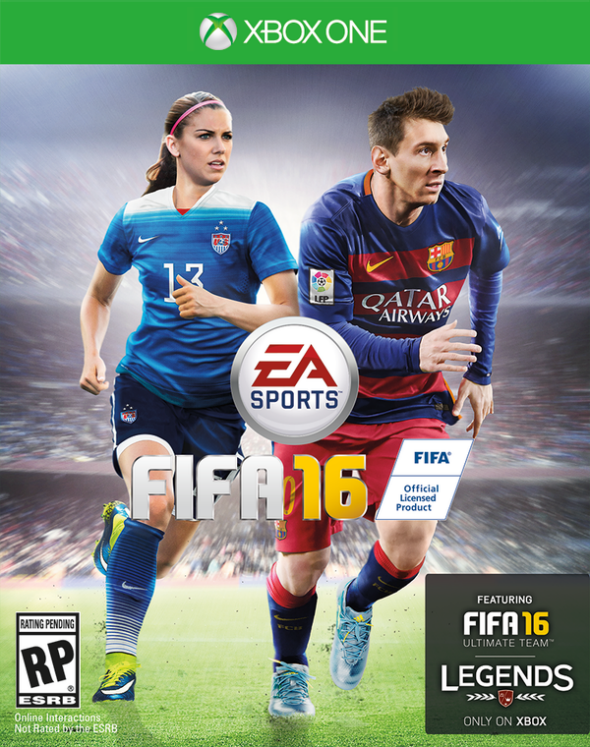U.S. national team star Alex Morgan will make a historic debut on the cover of the FIFA ’16 video game, the first time a woman has done so on the EA Sports soccer game. Morgan will share the cover with Argentine superstar Lionel Messi in the U.S. market when the 2016 version of the game is released in September. In the Canadian market, Canadian captain Christine Sinclair will be on the cover.
“It is an incredible honor to be one of the first women featured on the cover of EA Sports FIFA,” Morgan said in a statement. “I know people all over the world play this game and I’m really excited that FIFA 16 is putting such an important spotlight on women’s soccer. And now to share the cover with today’s greatest player is surreal.”
Morgan won’t only be making an appearance on the outside of the game, she and her teammates and competitors will also be a part of the game play of the videogame franchise for the first time. So, along with Messi’s Argentina squad, gamers can now play with a dozen women’s national teams: Australia, Brazil, Canada, China, England, France, Germany, Italy, Mexico, Spain, Sweden, and the U.S.
“Having women’s national teams in ‘FIFA 16’ will be great,” Messi said of the announcement. “Alex and her team have accomplished something amazing for their country and the sport in the USA, and to share the cover with her is an honor.”
While advancements in gender equality on a video game may seem trivial compared to other aspects of the women’s game—like a sustainable professional league, for instance—the EA Sports FIFA franchise is a powerful motivator of future interest. “A 2014 ESPN Sports Poll found that 34 percent of FIFA gamers became fans of professional soccer after playing it,” ESPN reported earlier this year. “Half said they became more interested in the pro game after playing the virtual version… since females make up 48 percent of the video game-playing public in the U.S., one of the most popular – and loudest – suggestions was to include women’s squads.”
